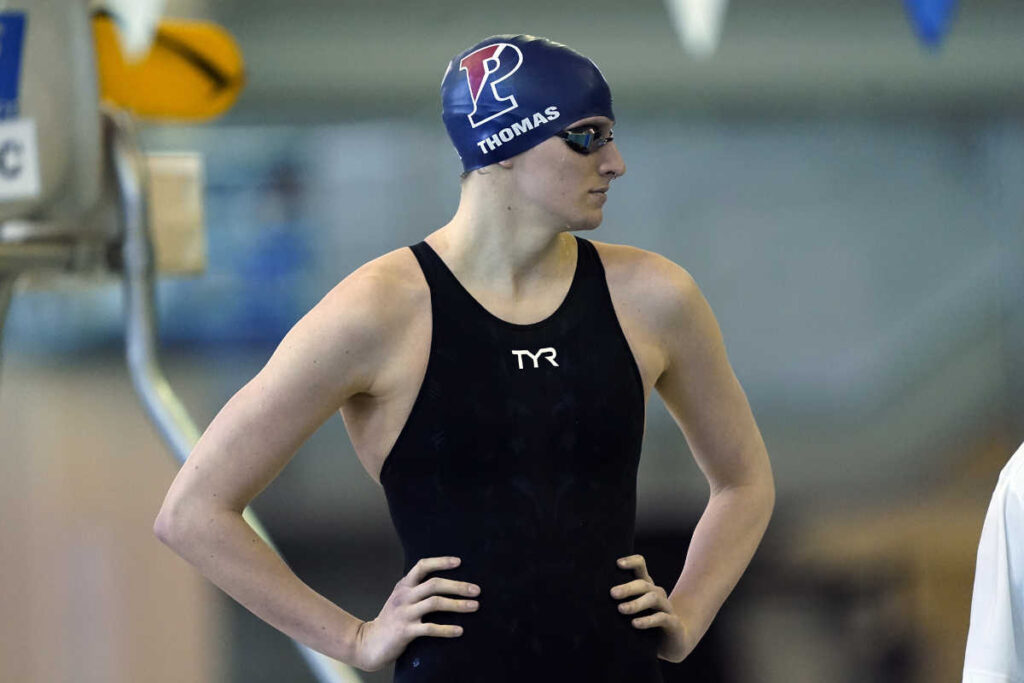FINA has banned transgender athletes from participating in women’s competitions
2 min read
Credit: AP Photo/John Bazemore
Lia Thomas’s participation in the women’s swimming competitions is on the verge of collapse by FINA.
The world’s governing organization for the sport FINA has submitted its verdict which is against the 22-year-old transgender swimmer.
Here is everything you need to know.
The world swimming body effectively bans transgender athletes from women’s events
FINA (French for the International Swimming Federation), has ruled out their verdict over transgender athletes, especially trans women partaking in elite levels of women’s swimming.
Furthermore, FINA members adopted a new ‘gender inclusion policy’ this weekend.
According to the new policy, male-to-female athletes have to prove that, ‘they have not experienced any part of male puberty beyond Tanner Stage 2 or before age 12, whichever is later’, to compete in the women’s category.
Tanner Stages serves as a guide to the physical development people undergo during puberty.
The organization has reasoned that a trans female athlete that has undergone male puberty will have an ‘unfair’ physical benefit over females.
A 71% majority of FINA Extraordinary General Congress 2022 in Budapest voted in favor of this decision.
Moreover the organization reached the verdict after 3 specialist groups offered multiple studies, reports, and presentations to the FINA group.
In the wake of the verdict, a spokesperson told a media outlet, ‘This is not saying that people are encouraged to transition by the age of 12. It’s what the scientists are saying, that if you transition after the start of puberty, you have an advantage, which is unfair.’
It worked! I took a lot of heat – but what’s fair is fair! If you go through male puberty you should not be able to take medals away from females. Period. https://t.co/qqZq7gnt6g
— Caitlyn Jenner (@Caitlyn_Jenner) June 19, 2022
Reactions to FINA’s new ‘gender inclusion policy’
FINA’s new policy unsurprisingly faced criticism from a few transgender advocacy organizations.
Anne Lieberman, director at Athlete Ally, a group that advocates for LGBTQI+ equality in sports described the policy as ‘d iscriminatory, harmful, unscientific’.
She said, ‘The eligibility criteria for the women’s category as it is laid out in the policy police the bodies of all women. It will not be enforceable without seriously violating the privacy and human rights of any athlete looking to compete in the women’s category.’
However, the Human Rights Campaign wrote that the ruling was a ‘blatant attack on transgender athletes’.
Celebrity, Caitlyn Jenner on the other hand, responded in favor of the new policy.
She insisted that trans female athletes do have a physical benefit over their cisgender contenders.
Jenner commented, ‘It worked! I took a lot of heat- but what’s fair is fair! If you go through male puberty you should not be able to take medals away from females. Period.’



